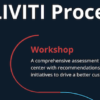University days are ancient history to most of us. However, many will clearly remember the horror of group projects and can still tell the tale like it was yesterday. The group dichotomy was almost always the same. A couple of slackers, a couple middle of the road students, and one incredibly hardworking person carrying the weight of the team.
Whether or not that prepared anyone for real-life corporate structure remains unanswered, though many corporate “teams” still seem to be defined by the college group project stigma. Creating organizational alignment still seems to be a struggle, and it is imperative to evolving companies.
Is your company preparing to launch a project to transition an underperforming or high-cost IT function to a cloud-based solution? There are significant benefits, including lower cost, flexibility, and scalability. Many organizations have made this move, and Contact Center as a Service (CCaaS) is especially popular. Moving a company’s contact center to the cloud offers multiple advantages. These include operational simplicity, portability, resource optimization, reduced operational expenses, and the ability to quickly scale up or down with demand.
What’s not to like about lower costs with improved effectiveness and flexibility?
The challenge is that any cloud software implementation is a large-scale IT project. For many companies, that means trouble.
Several years ago, Gartner published a report analyzing over 50 failed IT projects. While there is no shortage of excuses for why these projects failed, Gartner researchers found a common thread:
“The analysis showed that the organization’s refusal to address complexity in the business process is the main reason. Complex projects with unrealistic goals, unproven teams and almost no accountability at all levels of the management and governance structure, means no one is responsible for failure.”
A company’s CIO is the point person when it comes to any decisions about cloud-based software. However, there are always multiple stakeholders. Aligning the requirements of all involved departments, determining who has access to information (and when), who needs to take action, and determining who has authority at different stages is incredibly complicated. The right cloud-based software must be chosen. That solution must meet all stakeholder objectives and provide the tools needed for a seamless transition.
All too often in these scenarios, the result is a failure to execute. And then you end up on that Gartner list of failed IT projects (and reliving your college memories too).
Employing an effective and experienced consultant is the best option for ensuring a successful deployment.
An effective and experienced consultant works closely with the CIO and project stakeholders. They quickly develop a solid understanding of the roles and responsibilities of all parties involved in the project. They organize the team (ensuring there is alignment) and implement a process. They help put together the business case for the project, then work with the project management team in planning and implementation. The consultant is also a key point of contact with the cloud software vendor.
Often, the effective and experienced consultant is the critical piece that’s missing from many failed IT projects. They are an objective expert who represents the CIO, keeps all stakeholders and departments involved, and ensures a successful cloud-based implementation.
Making certain you choose the right consultant for the project is just as critical to success — especially with something as complex and with as many stakeholders as a cloud-based, as-a-Service implementation. The consultant needs soft skills and a proven process framework. The consultant must understand the company’s goals to recognize whether the chosen cloud software solution will meet requirements without compromise. If the right consultant is not intimately attached to the project, there is a real risk that anything less than intimate involvement will result in the project going sideways.
The long-term costs associated with doing nothing are far worse than the initial monetary investment of getting the right consultant. The last thing you want is a revolving door, with multiple consultants trying to manage your critical IT project through what amounts to a trial and error approach. Find the right one!
Search for experienced consultants who are also experts in cloud-based software solutions and their implementations. Find unique, data-driven frameworks that have been repeatedly proven through the successful implementation of cloud-based software by Fortune 500 companies. Get a consultant that brings experience, methodology, and the intimate knowledge of cloud-based software solutions.












